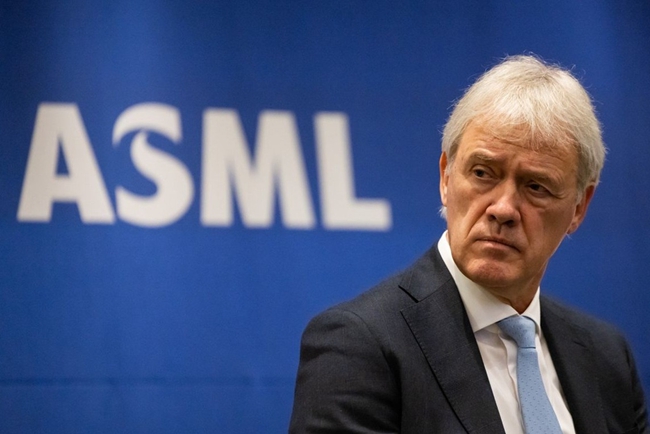As the U.S. gradually tightens controls on China's exports of advanced chips and chip-making tools, Dutch lithography giant Asmarck has become the focus of international political games. "It's not our role to get political," said Fouquet, the new chief executive officer (CEO) who took over the reins of Asmac in April this year, in a recent interview with The Wall Street Journal, and warned that the restrictions could have unintended consequences.
"For years, Asmay didn't have to worry about political restrictions on where the equipment could go, but all of a sudden it's become one of the most important topics in the world." Fouquet, a 51-year-old Frenchman, told the Wall Street Journal. Those who have worked with Fouquet reportedly say he is more comfortable solving technical challenges than dealing with politics. He has been an advocate of global technology cooperation within Asmay, and he has warned of the inefficiencies that can result from supply chain breakdowns. Now, however, Asmay cannot continue to ignore geopolitics.
For some time now, the U.S. has been pressuring the Netherlands to prevent China from acquiring key semiconductor technology. Last year, the Dutch government announced new export controls on semiconductor equipment, mainly targeting chip manufacturing technology for advanced processes, and Asmay bore the brunt of it. Under the regulations, Asmax needed to apply for an export license from the Dutch government in order to ship its state-of-the-art immersion DUV systems. However, shortly after the implementation of the new regulations, the Dutch government revoked some of Asmac's export licenses. According to a statement issued by Asmac on January 1 of this year, the Dutch government revoked the export licenses for the NXT:2050i and NXT:2100i lithography systems that were issued in 2023, and "this ban will affect a small number of customers in China." In a further effort to curb China's technological development, the U.S. also recently asked the Dutch government to add restrictions on repair services for some Asmax equipment in China.

The Wall Street Journal writes that Fouquet, as chief executive, needs to maintain a delicate balance for the company in an increasingly treacherous environment: meeting Western demands not to sell Asmay's most advanced chip-making equipment to China, while keeping China, a critically important market, open to less advanced chip-making equipment. He warned that the restrictions could have unintended consequences. For example, preventing Asmac from servicing certain machines in China would not stop those machines from making chips, but Asmac would no longer know where the company's equipment was going. If we're not there, he said, "we lose control."
China has been Asmax's largest market for three consecutive quarters, with exports to China accounting for 49 percent of Asmax's system sales in the first quarter of this year. Asmarc is very concerned about further restrictions on exports to China. Fouquet believes that the restrictions will give China more incentive to develop its own high-end technology, "the more restrictions imposed, the more it will push the other side to stand on its own two feet."
Intel has the same concern. According to Japan's "Nikkei Asian Review" reported on the 4th, Intel's chief executive officer Gelsinger said the company hopes to supply as many chips as possible to China, he also warned that the United States is too harsh chip export controls will only stimulate China's own production of chips.
Not long ago, China's National Integrated Circuit Industry Investment Fund III Co., Ltd. was established on May 24, with a registered capital of up to 344 billion yuan. U.S. media believe that the establishment of China's largest semiconductor investment fund in history to highlight its strong support for the development of the industry. University of International Business and Economics School of International Relations scholar Liang Huaixin on the 6th to the "Global Times" reporter said, China's semiconductor industry under heavy pressure, more firmly formed the understanding of independent development. On the one hand, China has the development of semiconductor technology base, can be in the West under pressure through independent knowledge and innovation, to realize the technology to follow up or even catch up in the future; on the other hand, China's huge local market and developing country demand, but also for the semiconductor technology innovation provides a good predictable income, can effectively pull the development of technology. And the West's suppression is precisely for China's semiconductor technology innovation to provide space, in the long run, the United States and with its actions of multinational enterprises is more than lost, both lost market also makes it have a more powerful rivals.

